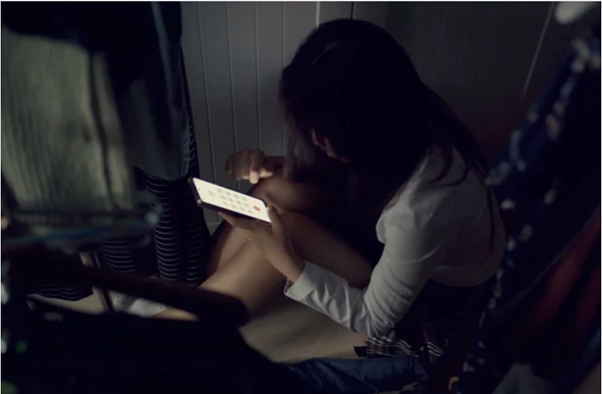'Knock Knock' wins Cannes For Social Good plus...4 more campaigns that help domestic abuse victims alert authorities.
A snapshot look at an awarded campaign with a curated pick of past campaigns that use a similar creative approach in some way.

Knock Knock | Korean National Police Agency | Cheil WW | 2022
Give domestic violence abuse victims a way to silently call for help. The campaign "Knock Knock" by the Korean National Police Agency aimed to raise awareness of the alarming increase in domestic violence cases in South Korea over the span of eight years, with only a 2% reporting rate to the police. Cheil Worldwide devised a discreet method for victims, who often live with their abusers, to report domestic violence without alerting their perpetrators. By calling the police and tapping any number twice on their phones, victims can silently signal for help. The police then provide a link that enables them to remotely access the victim's camera feed, allowing them to witness the situation at home, as well as track the victim's location.
Bruised Fruit | Interval House | Union | 2021
Turn bruised fruit into a way to give advice to people in abusive relationships. Domestic abuse shelter Interval House devised a creative way of engaging survivors in a location where they could be easily reached. Since the start of the pandemic, domestic violence rose by around 30% in Canada with women finding it harder to be reached by services that can offer advice. The Big Carrot in Toronto became the first supermarket to display a selection of bruised fruit to try to contact the women in the one place they are typically allowed to go. The bruised apples showed stickers that presented facts about domestic abuse and included Interval House's 24/7 helpline number.
Helpline On The Cover | Laisha | Havas | 2021
Turn the cover of a magazine into a media channel for a domestic abuse helpline number that most women didn't know existed. Over the past decade, 200 women in Israel fell victim to intimate partner violence, while more than 200,000 women continue to live with abusive partners, with only 4% aware of the lifesaving helpline *6724. As Israel's leading women's magazine, 'Laisha' took on the mission to improve women's lives by raising awareness of the helpline number. For the first time in 75 years, they changed their cover template to serve as a distribution channel for the helpline. The impactful campaign resulted in a 500% increase in helpline calls, providing assistance to over 1,700 women since publication. With 46 million media impressions and 1.6 million earned media (ILS), the campaign reached a wide audience and made a tangible difference.
Signal For Help | Canadian's Women's Foundation | Juniper Park | 2021
Give women stuck in their homes with their abusers a method to discreetly communicate over any video call that they need help. During the early days of the pandemic, domestic violence surged in countries under lockdown. Anticipating a similar rise in violence as the virus reached Canada, the Canadian Women's Foundation and its partner agency Juniper Park, swiftly responded to the crisis. To provide a discreet call for help while women were confined at home, they introduced a hand gesture that could be used silently and without leaving a digital trace during video calls which became a new social norm. Despite a limited media budget, the #SignalforHelp toolkit spread virally, reaching over 200 women's groups worldwide, garnering attention from 1410 media outlets in 20 languages, earning $31M+ in media coverage without any paid promotions, and accumulating over 3 billion impressions.
Alexa Lifeline | PADV | VMLY&R | 2018
Disguise Alexa request as a way for domestic violence victims to send for help. VMLY&R's brief was to give Australian women a way to call for help during an escalating situation. 70% of these women will never contact the police and usually have no way to use a phone to call a friend or family member for help during an escalating situation without further angering the abuser. So the agency created The Alexa Lifeline – a chance for women to discreetly text for help by simply turning on music, a behaviour that already existed. Once activated, a song plays and a secret custom text is sent to a designated friend. This gave women a discreet way to contact the outside world for help at a very crucial moment. Ultimately this turned an everyday personal assistant that's already within millions of homes into a potentially life-saving device.
